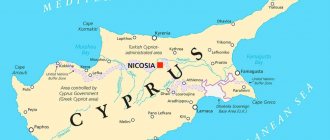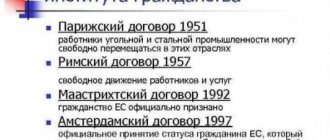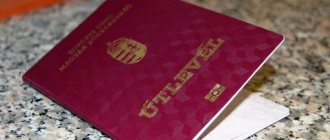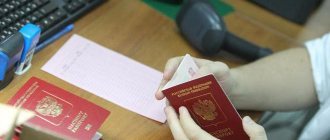Tajiks are hospitable people. They are happy to see any foreigner: be it a tourist, a student or an investor.
Dear readers! The article talks about typical ways to resolve legal issues, but each case is individual. If you want to find out how to solve your particular problem , contact a consultant:
8 (800) 700 95 53
APPLICATIONS AND CALLS ARE ACCEPTED 24/7 and 7 days a week.
It's fast and FREE !
Their legislation enshrines an unspoken permission that allows you to be present in a warm land with the opening of a diplomatic, commercial, official, study, or tourist visa.
How can you settle here “forever”? Does the constitutional system allow foreign citizens to exercise the right of lifelong residence in a fertile country? These issues are worth understanding in more detail.
Law
The law of the Republic of Tajikistan requires compliance with a certain procedure for foreigners. Let us immediately make a reservation that Tajiks whose children were born “outside the home” will not have problems obtaining citizenship.
The remaining categories exercise their rights according to a simplified or general algorithm.
In 1996, the Dushanbe authorities adopted a law regulating the rights of foreigners in the Republic of Tajikistan. Based on it, by 1999, unified rules for entry and exit from the territory of the Republic were developed.
According to the provisions of this regulatory act, a foreigner arriving in a foreign state is required to register within 3 days after crossing the border. These days do not include weekends and holidays.
The latest version of the law “On Citizenship” was adopted in the country in August 2015 by the current President of the Republic.
Following it, in order to obtain citizenship “immediately and now”, you need to have the following grounds:
- the birth of children among indigenous people;
- restoration of previously lost rights;
- stay in the former Tajik SSR (all changes related to changes in the state border are taken into account).
The regulatory act does not apply to tourists and residents of the Russian Federation who plan to relax or work in the fertile region for no more than 90 days.
If they are going to undergo treatment at resorts and health resorts of the young Republic, then a tourist visa is opened for them. If they enter the country for the purpose of negotiations, they are granted a business visa.
Attention: A tourist visa is designed for a group of arriving persons from 5 to 50 people. These people must cross the Russia-Tajikistan border on the same day.
A diplomatic visa is also available for diplomats. This type allows you to perform the functions of an ambassador for 2 years. During these two years, you can settle in Tajikistan, learn the language and find a permanent job.
Citizenship issues
In accordance with the constitutional Law of the Republic of Tajikistan, a citizen of the Republic of Tajikistan is considered a person who, on the day of adoption of the Constitution (11/6/1994), is a citizen of the Republic of Tajikistan or has acquired citizenship of the Republic of Tajikistan in accordance with this constitutional Law.
Citizens of Tajikistan may not have the citizenship of another state, except in cases provided for in the Law of the Republic of Tajikistan “On Citizenship of the Republic of Tajikistan” and international treaties of the Republic of Tajikistan.
Documents confirming citizenship of the Republic of Tajikistan:
— passport of a citizen of the Republic of Tajikistan;
— birth certificate (before receiving a passport of a citizen of the Republic of Tajikistan);
- another document containing an indication of the person’s citizenship.
The procedure for acquiring citizenship of the Republic of Tajikistan
Citizenship of the Republic of Tajikistan is acquired in the following cases:
- by birth;
- in the order of its registration;
- as a result of admission to citizenship;
— as a result of restoration of citizenship of the Republic of Tajikistan;
- by choosing citizenship when changing the state affiliation of the territory and on other grounds provided for by international treaties of the Republic of Tajikistan;
- on other grounds provided for by the Law of the Republic of Tajikistan “On Citizenship of the Republic of Tajikistan”.
Determining the citizenship of children
a) A child whose parents at the time of his birth are citizens of the Republic of Tajikistan is a citizen of the Republic of Tajikistan, regardless of his place of birth.
b) If the parents have different citizenships, the child is a citizen of the Republic of Tajikistan:
- if one of the parents is a citizen of the Republic of Tajikistan at the time of the child’s birth;
- if he was born on the territory of the Republic of Tajikistan;
- if he was born outside the Republic of Tajikistan, but his parents or one of them
at that time had permanent residence in the territory of the Republic of Tajikistan.
c) If the parents have different citizenships, one of whom at the time of the child’s birth was a citizen of the Republic of Tajikistan, if at that time both parents had permanent residence outside the Republic of Tajikistan, the citizenship of the child born outside the Republic of Tajikistan is determined by written agreement of the parents.
d) A child, one of whose parents at the time of the child’s birth was a citizen of the Republic of Tajikistan, and the other is stateless or unknown, is a citizen of the Republic of Tajikistan, regardless of the place of birth.
e) If the paternity of a child is established, whose mother is a stateless person, but whose father is a citizen of the Republic of Tajikistan, a child under 14 years of age, regardless of place of birth, is recognized as a citizen of the Republic of Tajikistan.
f) A child born on the territory of the Republic of Tajikistan from stateless persons is a citizen of the Republic of Tajikistan.
g) A child who is on the territory of the Republic of Tajikistan, but whose parents are unknown, is a citizen of the Republic of Tajikistan.
g) A child born on the territory of the Republic of Tajikistan whose parents are citizens of other states is considered a citizen of the Republic of Tajikistan if these states have not granted him their citizenship.
Acquiring citizenship by registration
By registration, citizenship of the Republic of Tajikistan is acquired by:
a) persons whose spouse or immediate relatives are citizens of the Republic of Tajikistan;
b) persons who, at the time of birth, at least one of the parents was a citizen of the Republic of Tajikistan, but who acquired another citizenship by birth within five years after reaching the age of eighteen.
Admission to citizenship of the Republic of Tajikistan
Citizens of other states and stateless persons may, at their request, be granted citizenship of the Republic of Tajikistan in accordance with the Law of the Republic of Tajikistan “On Citizenship of the Republic of Tajikistan”. The decision on applications for admission to citizenship of the Republic of Tajikistan is made by the President of the Republic of Tajikistan.
Conditions for admission to citizenship of the Republic of Tajikistan
Persons who have reached the age of 18 and are not citizens of the Republic of Tajikistan may apply for citizenship of the Republic of Tajikistan, regardless of social status, nationality, race, gender, education, language, religion, political beliefs, etc.
The usual condition for admission to citizenship of the Republic of Tajikistan is permanent residence on the territory of the Republic of Tajikistan:
- for foreign citizens and stateless persons - five continuous years immediately before filing an application;
— for refugees recognized as such on the basis of the law and treaty of the Republic of Tajikistan, the specified periods are halved.
The period of residence on the territory of the Republic of Tajikistan is considered continuous if a person traveled outside the Republic of Tajikistan for study or treatment for more than three months.
Circumstances that facilitate admission to citizenship of the Republic of Tajikistan are:
- state of citizenship of the former USSR;
— adoption of a child who is a citizen of the Republic of Tajikistan;
— the presence of high achievements in the field of science, technology and culture, as well as the possession of professions or qualifications of interest to the Republic of Tajikistan;
— the presence of merit to the people of the Republic of Tajikistan, in the implementation of universal ideals and values;
— obtaining asylum on the territory of the Republic of Tajikistan;
— the past status of a person or one of his relatives as a citizen of the Republic of Tajikistan;
- married to a citizen of the Republic of Tajikistan.
Grounds for refusal to grant citizenship of the Republic of Tajikistan
An application for admission to citizenship of the Republic of Tajikistan is rejected if the person applying for it:
— advocates a violent change in the constitutional system of the Republic of Tajikistan;
- belongs to parties and other organizations whose activities are incompatible with constitutional principles
Republic of Tajikistan;
- convicted and serving a sentence of imprisonment for actions prosecuted under the legislation of the Republic of Tajikistan;
- is a citizen of another state in the absence of an interstate agreement on dual citizenship with it.
Restoration of citizenship of the Republic of Tajikistan.
In the order of registration, citizenship of the Republic of Tajikistan is restored:
- persons whose citizenship of the Republic of Tajikistan has ceased due to adoption, establishment of guardianship and trusteeship;
- persons whose citizenship of the Republic of Tajikistan ceased due to a change in the citizenship of their parents within five years after reaching the age of eighteen;
- former citizens of the Republic of Tajikistan, deprived of citizenship or having lost it without their free will, are considered restored to citizenship of the Republic of Tajikistan.
Powers of the Ministry of Foreign Affairs of the Republic of Tajikistan, diplomatic missions and consular offices of the Republic of Tajikistan;
a) accept applications and petitions on issues of citizenship of the Republic of Tajikistan from persons living outside the Republic of Tajikistan;
b) check the facts and documents presented in support of applications and petitions on issues of citizenship of the Republic of Tajikistan;
c) send applications on citizenship issues along with relevant documents to the Commission on Citizenship Issues under the President of the Republic of Tajikistan;
— determine the citizenship of the Republic of Tajikistan of persons living outside the Republic of Tajikistan;
e) keep records of citizens of the Republic of Tajikistan permanently residing outside the Republic of Tajikistan;
f) carry out registration of applications of persons living outside the Republic of Tajikistan on issues of citizenship of the Republic of Tajikistan in accordance with the constitutional Law of the Republic of Tajikistan “On Citizenship of the Republic of Tajikistan”.
The procedure for filing applications and petitions on issues of citizenship of the Republic of Tajikistan.
An application for registration of a change in citizenship is submitted to the internal affairs bodies of the Republic of Tajikistan at the place of residence of the applicant, and by persons living outside the Republic of Tajikistan to the relevant diplomatic missions and consular offices of the Republic of Tajikistan.
Applications for citizenship issues are submitted to the President of the Republic of Tajikistan through the internal affairs bodies at the applicant’s place of residence, and by persons living outside the Republic of Tajikistan through diplomatic embassies and consular offices of the Republic of Tajikistan.
Forms of applications and petitions on issues of citizenship of the Republic of Tajikistan.
Applications and petitions regarding citizenship issues are submitted in writing. The consent of interested parties to the acquisition, termination, retention or change of citizenship must be in writing. The signature under this document is certified by a notary. Signatures of citizens of the Republic of Tajikistan living outside its borders may be certified by diplomatic missions or consular offices of the Republic of Tajikistan.
If the applicant cannot sign the application or petition due to illiteracy or due to his physical disabilities, it, at his request, is signed by another person, about which a corresponding notarial record is made. Outside the Republic of Tajikistan, such an entry in an application or petition is made by a diplomatic mission or consular office of the Republic of Tajikistan.
Conclusions and proposals on citizenship issues prepared by the Ministry of Internal Affairs and the Ministry of Foreign Affairs, together with relevant documents, are sent to the Commission on Citizenship Issues under the President of the Republic of Tajikistan.
• Deadlines for filing and consideration of applications and petitions on issues of citizenship of the Republic of Tajikistan.
The period for consideration of applications on citizenship issues should not exceed six months and applications - nine months.
The deadline for filing an application for citizenship of the Republic of Tajikistan, missed for valid reasons, may be restored at the request of the applicant by the Commission on Citizenship Issues under the President of the Republic of Tajikistan.
• The date of acquisition or termination of citizenship of the Republic of Tajikistan
is considered acquired or terminated from the date of the decision by the authorized body or the issuance of the Decree of the President of the Republic of Tajikistan.
Advantages and disadvantages
Moving to Tajikistan actually means accepting someone else's ways and customs. According to statistics, about 85 percent of citizens are indigenous people. The remaining 14 percent is “owned” by an Uzbek.
And only one percent are Russian and foreign citizens who arrived from different countries for permanent residence.
The following problematic issues are also noted in the young Republic:
- Relatively low life expectancy - it reaches just under 68 years;
- Low social benefits (for example, pension reaches about $100 per month).
- Low level of urbanization - most of the population lives in rural areas, where there are problems with water supply and heating;
- In winter, rental prices in the capital and cities rise sharply.
Those foreigners who are employed in mining, energy, IT and banking services can be considered full citizens of the young Republic.
Here the wages are higher and there is a shortage of personnel. But you need to settle in Dushanbe and its suburbs. When investing in the country's economy, tangible profits will be received. The service sector is especially in demand.
What is modern Tajikistan like?
Tajikistan is a very colorful country where you can fully immerse yourself in the wonderful world of the East. The Republic of Tajikistan (Kumchuria Tojikiston) has no access to the sea. It neighbors Afghanistan, China, Kyrgyzstan and Uzbekistan. 94.1% of the country's territory is occupied by the Pamir Mountains.
The climate of Tajikistan is subtropical, characterized by significant fluctuations in daily and seasonal temperatures, as well as low precipitation. The average January temperature is +2°C in the valleys, and in summer you can swelter with the heat, the average July temperature is +30°C. At the same time, one can observe a significant temperature difference depending on the topography. For example, at the Bulunkul peak in January an absolute temperature minimum of −63 °C was recorded, and in July in the Tajik region of Nizhny Pyanj a temperature maximum of +48 °C was recorded.
Turkmenistan can rightfully be considered an environmentally friendly country, since there is practically no industrial production and, accordingly, harmful emissions into the atmosphere. In addition, the countries neighboring Tajikistan cannot boast of significant industrial emissions. Therefore, the immigrant can expect the purest mountain air, crystal clear water of mountain rivers and organic products grown naturally on fertile lands cultivated by local farmers and in Tajik households.
The history of Tajikistan goes back thousands of years. Tajiks consider themselves a Persian people, and their language is part of the Persian (Iranian) subgroup and is considered a dialect of the Iranian language. Historical research confirms that modern Tajikistan in ancient times was part of the Persian Empire and was inhabited by the Persians. The last population census was conducted in Tajikistan in 2021. She stated that today almost 8.1 million people live in the country. Despite the difficult economic situation, the country's population shows slow but stable growth. This is primarily due to the high birth rate, since ten or more children are considered the norm in Tajik families. The birth rate significantly exceeds the death rate. For example, in 2021, 266,228 children were born in this country, and 48,887 people died.
The capital of the country is the city of Dushanbe, which is inhabited by 1.1 million people. This is almost 13% of the total population of the state. In second place is the city of Khujand, where almost 200 thousand people live, in third place is Kulyab, which has almost 82 thousand inhabitants. Urbanization in Tajikistan falls short of 30%. Most Tajiks traditionally live in rural areas. Tajikistan is characterized by internal shuttle migration of the population, since the country has problems with energy supply and water supply to the population. This is especially typical for rural areas, therefore, in the cold season, a significant part of the residents of Tajik villages move to cities, where such problems are practically not observed. Accordingly, in winter, prices for rental real estate in Dushanbe and other Tajik cities increase noticeably.
The capital of the country, Dushanbe, is located in the foothills of the Pamirs
In terms of national composition, Tajikistan is approaching a mono-national state. Tajiks themselves make up 85% of the total population, with the Uzbek national minority in second place. There are about 14% of Uzbeks in Tajikistan. Only 1% of the country's inhabitants belong to other nationalities. Among them in Tajikistan most of all are Russians, Ukrainians, Jews and Germans.
Today there is a small Russian community in Tajikistan. According to the 2021 census, 68 thousand ethnic Russians lived in this country. Today there are six parishes of the Russian Orthodox Church in Tajikistan.
The last population census conducted in the USSR stated that in 1989, just under 400 thousand ethnic Russians lived in the small Central Asian republic. The story of their resettlement from Tajikistan is very dramatic. In May 1992, civil war broke out in the former Soviet republic. The reason for it was the increasingly intensified contradictions between the former party leadership of Tajikistan and the new democratic opposition forces. The latter intended to transform Tajikistan into an orthodox Islamic state. The opposition was supported by the West and economically powerful Islamic states. In the summer of 1997, a peace treaty was signed between the warring parties in Moscow. As a result of democratic elections, President Emomali Rahmon came to power, who is the permanent head of the Tajik state to this day. During the civil war, hundreds of thousands of ethnic Russians were forced to leave Tajikistan. Several thousand of them died during the armed conflict and ethnic cleansing carried out by the warring parties. Today, peace and tranquility reign in Tajikistan, the attitude towards Russians has radically changed. But the echo of the civil war sometimes reminds itself. The country still has a lot of uncontrolled weapons in the hands of the local population, and some sections of roads remain uncleared to this day.
The family is considered the basis of Tajik society. The laws and rules of Islam have a huge impact on everyday life. Since Islam allows a man to have up to four wives, such families are not uncommon in Tajikistan. Accordingly, families are very large, some of them have more than 20 children. The attitude towards women is largely consistent with Islamic traditions. The Tajik woman is hardworking, she strives to comply with the laws of Islam, but at the same time her role in society is secondary. The gender issue is not on the agenda, women are absent from power structures, they are not among entrepreneurs and businessmen. The Tajik man is assigned a dominant role. In rural areas, women in Tajikistan continue to traditionally wear a burqa or hijab, and women in cities also do not strive for openness in clothing.
The trend of modern Tajik society is the mass labor migration of the working population to more prosperous states, from an economic point of view. This has led to multiple dramas in Tajik families, since male labor migrants who went to work in the Russian Federation or the Republic of Uzbekistan often start new families there and remain to live.
Today, Tajikistan ranks 91st among 143 countries in the world in terms of living standards. But at the same time, its annual growth in the ranking is observed by several points.
The country is characterized by a significant difference in the incomes of the urban and rural population. You can find work in cities, which cannot be said about rural areas. In 2021, the average salary in the republic slightly exceeded $180, while the “minimum wage” was set at the legislative level at around $100. Workers in the mining industry ($390) and energy ($250) are paid the most. The lowest wages are among workers in the agricultural sector of the economy. The share of the service sector in the Tajik economy is more than 50%.
The social protection system of the population of Tajikistan is at a low level and is just beginning to develop. The average Tajik pension is just over 30 US dollars. Men finish their working career at 63 years old, women can retire at 58 years old. The average disability pension paid is $26.
Video: interesting about Tajikistan
In recent years, along with rising wages, there has been a slow but steady growth of the Tajik economy. This is largely due to the involvement of foreign specialists, including Russians. Quite a few of them have recently moved to Tajikistan to work in the mining industry and geological exploration. There are also many Russian investors who have invested significant funds in the development of the Tajik economy. Russian military personnel also serve in Tajikistan.
Tajikistan neighbors Afghanistan in the south. The border between these states is a big headache for the Tajik government. Even in Soviet times, the border was difficult to guard, and in independent Tajikistan it is only a conditional line running through the highlands. We should not forget that Afghanistan is among the leaders among countries producing drugs on its territory. Serious drug trafficking runs through Tajikistan, and the country’s authorities are trying to actively counteract it. But such a situation, especially against the background of the low standard of living of the indigenous population, creates a very difficult crime situation. There is organized crime in the country, which derives its main income from the drug trade, as well as weapons. The Russian Federation, by agreement with the Tajik authorities, stationed its military contingent on the territory of Tajikistan.
You can walk along the streets of Tajik cities without fear. Here street crime is practically undeveloped. Petty pickpockets are rather the exception to the rule. Property crimes involving robberies of apartments, houses or cars are also considered quite rare. Tajik criminals direct almost all their efforts to making profits from drug trafficking.
Prices in Tajikistan will pleasantly please the Russian immigrant. More likely, they will even hit you. For example, a local migrant worker who has returned from working in Russia or Uzbekistan can afford to buy a two-room apartment in a residential area of Dushanbe. Moreover, it will not take him decades to accumulate sufficient funds. The cost of the described housing in the Tajik capital will be only 12 thousand dollars.
Several years ago, I had the opportunity to visit Tajikistan as part of a business trip, which took me through Uzbekistan, Tajikistan and Kyrgyzstan. I had to live in Dushanbe for two weeks. This time was quite enough to draw up a general outline of life in the country. Immediately after landing the plane at the Dushanbe International Airport, you get the impression that you have traveled back in time 25 years. In many ways, there are still Soviet realities mixed with Islamic traditions. For a person who has flown to Tajikistan from Russia, the prices for literally everything will seem simply ridiculous. And this is even despite the fact that Tajik traders sensitively recognize a visiting Russian-speaking person in a buyer, without confusing him with a local Russian-speaking person. For the first, naturally, the price will be much more expensive than for the second. In general, prices in Tajikistan are proportional to the income of the local population. Computer equipment and cars are expensive, the Internet is poorly developed, and its quality, to put it mildly, leaves much to be desired. In addition, it is very expensive, which is due to the lack of providers that can be counted using the fingers of one hand. For the average resident of the country, a computer is a rather expensive thing, which is available only to those who come to work abroad. There is no need to talk about cars at all, so the traffic on the streets of Dushanbe is not busy. Compared to the rest of Tajikistan, Dushanbe stands out very favorably. A Russian speaker in Tajikistan will not have any special problems, since everyone understands Russian. Even Tajik youth speak Russian quite well, not to mention representatives of the older generation. The Tajik police have many rights, they are well armed and trained, they are feared and respected. We can say that a tough management hand is felt in Tajikistan. In many ways, this state can be considered authoritarian; the system of power here was formed several decades ago, and since then new faces have rarely appeared in power structures. Traveling around the country, I noticed that the government’s control over the life of remote regions of Tajikistan, located, as a rule, in the mountains, is not complete. Local clans and criminal groups have a significant influence on the lives of the local population in these regions. You can go to the mountains and simply disappear forever. Therefore, it is not recommended for an immigrant to travel alone to the mountainous regions of Tajikistan. It is advisable to take with you a trusted guide who will always quickly find a common language with the local population. At least, this is what you should do at the initial stage of living in Tajikistan.
Over the past three years, more than half a million illegal labor migrants from Tajikistan alone have been sent home from Russia. In total, the number of Tajik guest workers in the Russian Federation, according to experts, previously exceeded one million. But at the beginning of 2021, the Russian government announced a migration amnesty in Russia, as a result of which nearly 123 thousand labor migrants were amnestied. Previous violations of Russian migration legislation led to the refusal of 181 thousand Tajik labor migrants to enter Russia.
The International Organization for Migration (IOM) is also concerned about issues of illegal labor migration from Tajikistan. Its representatives have been in Tajikistan for several years, helping the Tajik government in matters of regulating labor migration traffic. In particular, their activities are aimed not only at controlling the flow of labor migrants, but also at ensuring their social security. In 2015, IOM conducted an official study on trends and prospects for labor migration from Tajikistan. The research results formed the basis for IOM recommendations to the Tajik authorities.
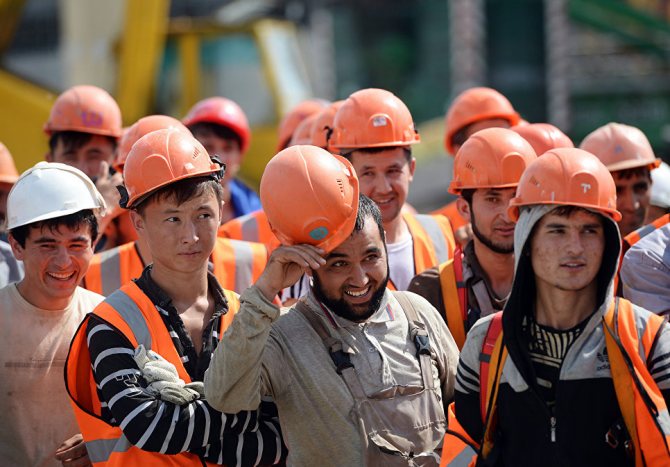
In 2015, IOM conducted an official study of trends and prospects for labor migration from Tajikistan
Immigration of Russians to Tajikistan is not a common phenomenon today. As a rule, we are talking about labor immigration, about a program to unite families (since many Russians still live in Tajikistan, as mentioned above), and Russian military pensioners also move to Tajikistan quite often. Their level of pension provision makes them feel like very wealthy people in this country. If a military pensioner previously served on the territory of Tajikistan, then returning to this country as an immigrant does not pose a particular psychological problem for him. Often, representatives of civilian professions who have completed their careers move along with military retirees. They are attracted to Tajikistan by the low cost of living and environmental friendliness.
98% of the population of Tajikistan professes Sunni Islam. Today there are 3882 mosques in the country.
Who can obtain Tajik citizenship
Migration services in Tajikistan need to understand the purpose of arrival of foreigners.
The list of obvious reasons:
- desire to work and earn income;
- desire to invest in the country's economy;
- studying at prestigious universities;
- pursuit of diplomatic and nationally significant goals;
- patriotism.
When choosing general conditions, a citizen of another state needs a long time. Of course, it is possible to reduce the waiting period to three years: this happens when marrying a citizen of Tajikistan.
In other cases you will need:
- write an application for citizenship to the migration service;
- obtain a provisional (work) visa;
- apply for a residence permit;
- work and live continuously in the Republic for many years;
- ability to communicate in Tajik fluently and without problems;
- absence of criminal prosecutions in the defendant’s homeland and abroad.
How to obtain a residence permit for citizens of Tajikistan
If we talk about what is needed to obtain a residence permit for citizens of Tajikistan, there are two ways: the first is simplified, the second is more complex. In the latter case, a citizen of Tajikistan will have to first enter the country. This document requires you to live in Russia for at least a year, after which you can begin collecting a package of documents for obtaining a residence permit.
As mentioned above, there is a shorter way that the following categories can use:
- highly qualified specialists who have received work as part of Russian enterprises and companies, as well as members of their families;
- participants in resettlement programs;
- foreigners coming to the state for .
Those who do not fall into any of the categories will still have to initially apply and live there for at least a year.
The application and the certificates required to obtain a residence permit must be submitted no later than six months before the expiration of the temporary residence permit.
The deadline for obtaining a residence permit is two and a half years after receiving a temporary permit. If you miss this period, you will have to open the temporary residence permit again.
List of documents
The entire package of documents is submitted to the department of the Main Department of Migration Affairs of the Ministry of Internal Affairs at the place of residence, it includes:
- passport of a citizen of the Republic of Tajikistan or another type of document confirming citizenship and identity;
- temporary residence permit, previously issued in the manner prescribed by law;
- , which confirms the financial possibility of living in Russia, that is, corresponds to the subsistence level in force in the Russian Federation;
- if a citizen is declared disabled, he needs;
- , as well as other types of infectious diseases that are dangerous to others;
- ;
- .
In addition, you will need to draw up an application according to the specified sample and prepare photographs for documents. Do not forget also about the need to pay state duty.
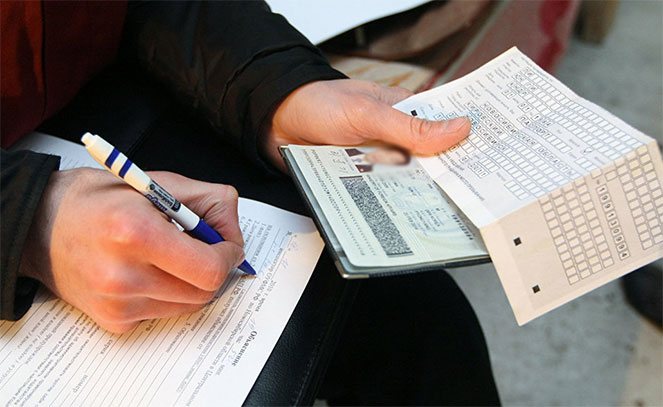
Double
Article 4 of the Law “On Citizenship” denies the possibility of obtaining dual citizenship. On the contrary, a foreigner, accepting new conditions, must abandon old benefits and habits. The exceptions are those countries with which so-called “special” agreements have been concluded.
See how to obtain citizenship for a newborn child. How to grant citizenship to a child through State Services? Find it at the link.
International agreements change the usual order. The issue of dual citizenship is being resolved positively. Thus, Russia has been cooperating with Tajikistan for a long time: thousands of citizens have a mark in their passports indicating that they simultaneously belong to two states.
This means that here and there residents of democratic countries can take advantage of guarantees, benefits and privileges.
Attention! Both parties are notified of the acquisition of dual citizenship. The Migration Department of the Russian Ministry of Internal Affairs should also be aware of the new status.
Cancellation of a document
Russian legislation specifies a wide list of reasons why a residence permit can be revoked. All of them are described in the Federal Law “On the Legal Status of Foreign Citizens in the Russian Federation” (Article 115). If a citizen of Tajikistan has violated the deadline for the annual submission of documents, does not comply with the laws and rules of stay in the state, he can expect an inspection by a representative of the territorial unit of the Main Directorate for Migration of the Ministry of Internal Affairs. Notification of its results is sent to foreigners within three days. If a decision has been made to cancel your residence permit, you will have to hand over the document, and a note about cancellation will appear in your national passport.
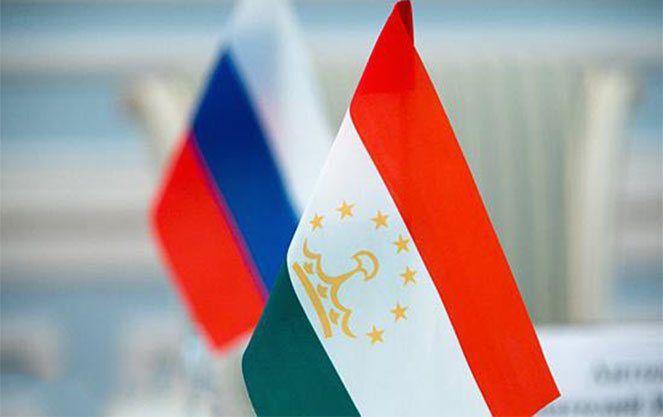
Documentation
Obtaining citizenship of another country has not become easier. Every year brings new changes. The rules are becoming stricter due to the increase in the number of persons (migrants) wishing to move and live in other conditions.
The country's security interests are now paramount. Measures aimed at preventing the terrorist threat play an important role in this regard.
Entrants are subject to strict registration and control. The state does not allow the possibility of admission of suspicious persons and criminal elements.
So, when crossing the state border, the following is checked:
- Russian passport.
This document indicates the date of entry and exit. It is used to calculate the permissible period of presence in a constitutional country. In the absence of a Russian identity card, the document is replaced with a foreign passport.
The passport's validity period is checked. Candidates with an expired document are “sent back” at their own expense.
- Availability of money.
Without currency there is nothing to do in the country. But excess cash also frightens the authorities. The amount that is allowed to be transported across the border cannot exceed 5,000 US dollars. The amount of cash is indicated in the customs declaration.
It is prohibited to take Tajik somons with you.
- Birth certificate for arriving children.
- Notarized consent to “import” the child.
Minor children traveling with one of the parents are required to have a foreign passport and notarized permission from the other parent.
A situation is allowed when a photograph of the child with a special mark is pasted into the papers identifying the parent’s identity. If the absent father or mother has died, the document is replaced by a death certificate of the established form.
- Customs declaration.
It lists the contents of baggage transported across the border. Weapons, cutting objects, potent medicines, drugs, and psychodysleptics cannot be carried in suitcases and bags. After its registration, the border service stamp is placed on 2 copies.
- Migrant card.
The migrant's card is drawn up at the checkpoint when moving.
Features of migration registration
The migration law of Tajikistan obliges all citizens of the Russian Federation entering the country to register with the internal affairs bodies within three days after crossing the border of the republic. Registration is not needed if tourists (not migrants) do not plan to stay within the country for more than three days. It also eliminates the need to register dual citizenship. It is important to take into account certain subtleties of registration for migration:
- the period for registration of Russians, as well as for representatives of other countries, is three days, while weekends and holidays are not taken into account;
- foreigners staying in hotels do not have to take any independent actions - the hotel administration will independently deal with all issues of registering guests for migration registration;
- a foreigner staying on private property must appear at the passport office with the owner of the home.
Registration is subject to a fee. The cost is formed from payment of the state duty and the cost of passport office services. Registration for up to three months will cost 90 (ninety) somoni, for a longer period - 130 (one hundred and thirty) somoni. One somoni is equal to approximately seven Russian rubles. Hotels automatically charge the specified amount when you pay your bill. If a tourist (not a migrant) registers on his own, he transfers payment through the bank according to the details provided at the passport office.
The presence of registration is confirmed by a card indicating the full name. foreign citizen, his passport details and the deadlines for migration registration. It is highly advisable not only to obtain a registration card, but also to always have it with you - migration service employees often monitor whether foreigners have registration (in order to identify illegal migrants). If visitors do not have one, then they face a very serious fine. If a foreigner has dual citizenship, he must have the appropriate documents with him.
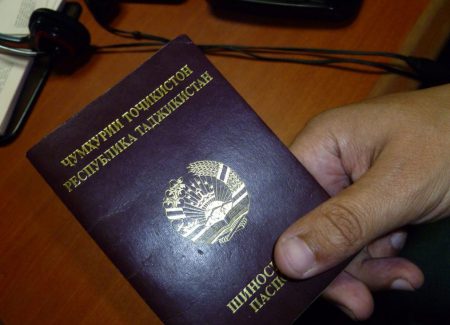
The visa-free regime between Russia and Tajikistan is carried out on the basis of the Agreement of November 30, 2000. For Russians to enter Tajik territory, it was enough to have an internal passport. Tajik citizens and migrants had to fulfill the same requirement. Since January 1, 2019, the Decree of the Prime Minister of the Russian Federation on the need to obtain a foreign passport to enter our country has been in force. Therefore, most labor migrants from Tajikistan have foreign passports, and some have dual citizenship. Dual citizenship, Russian and Tajik, has been in effect between the Russian Federation and Tajikistan for about 20 years.
According to the laws of the Tajik side, Russians are now also prohibited from entering the country using internal Russian passports unless they have dual citizenship. Soon such a law will be introduced in almost all CIS countries; all migrants will be required to have foreign passports.
In 2021, Russians do not need a visa to visit Tajikistan. Entry is based on a foreign passport. You are allowed to stay inside the country for no more than ninety days. For further stay in the republic, “I want” is not enough; you will need a visa to legally visit Tajikistan for a longer period.
When can they refuse?
A residence permit for citizens of Tajikistan will not be issued if employees of the Ministry of Internal Affairs identify one or more of the following circumstances:
- The applicant suffers from drug addiction.
- The person is infected, which is dangerous for other people;
- A citizen of Tajikistan cannot meet his material needs while living in the Russian Federation: his income is less than the current minimum wage.
- The applicant poses a threat to the security of Russian citizens and the country itself, is a terrorist or supports such people.
- Over the past five years, there has been a case of deportation, expulsion, readmission, or two such cases within ten years.
- A citizen has been convicted of a serious or especially serious crime in the Russian Federation or another country, for illegal drug trafficking, or has a criminal record that has not yet been expunged.
- The applicant's documents turned out to be forged or forged, or he provided false information.


